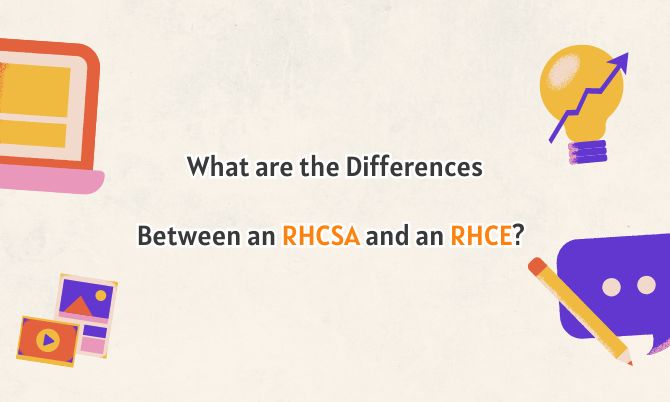The Red Hat Certified System Administrator (RHCSA) and the Red Hat Certified Engineer (RHCE) represent two of the most prestigious and widely recognized certifications in the world of Linux system administration. These credentials are highly valued by employers globally and serve as benchmarks for professional competency in Linux environments. While both certifications are meticulously designed for IT professionals working with Red Hat Enterprise Linux (RHEL), they were created to fulfill different purposes within the certification pathway and require distinctly different skill sets and levels of expertise. Understanding the differences between these two certifications is essential for IT professionals planning their career development in Linux administration.

A Red Hat Certified System Administrator (RHCSA) is an IT professional who possesses the essential skills required to manage and operate RHEL-based systems. This certification is considered the foundational credential for individuals who want to establish themselves in Linux administration. To earn an RHCSA certification, candidates must pass the EX200 exam, which tests their ability to perform core system administration tasks.
RHCSA Key Responsibilities
Managing users and groups
Handling file permissions and access controls
Configuring network services and firewalls
Managing storage, including LVM and partitions
Performing basic security management tasks
Controlling and managing system processes
Implementing basic system monitoring and troubleshooting
RHCSA certification is ideal for individuals looking to validate their foundational Linux skills and is often a prerequisite for higher-level Red Hat certifications.
A Red Hat Certified Engineer (RHCE) is an RHCSA who has advanced their expertise to include automation and Red Hat emerging technologies. RHCEs are skilled in automating Linux system tasks, integrating Red Hat solutions, and enhancing operational efficiency through automation. To earn an RHCE certification, candidates must pass the EX294 exam, which focuses on Red Hat Ansible Automation and other advanced Linux administration topics.
RHCE Key Responsibilities
Automating system administration tasks using Ansible
Deploying, managing, and configuring enterprise-level systems Integrating
Red Hat technologies into complex IT environments
Optimizing system performance and security through automation
Implementing and managing network services in a Linux environment
Troubleshooting and resolving advanced system issues
RHCE certification is ideal for IT professionals who want to demonstrate their ability to automate and manage complex Linux environments effectively.
| Feature | RHCSA | RHCE |
| Exam Code | EX200 | EX294 |
| Skill Level | Entry-level | Advanced |
| Focus | Core Linux administration | Automation & advanced Linux tasks |
| Required for RHCE? | Yes | N/A |
| Ideal For | Beginners in Linux system administration | Experienced administrators looking to automate and optimize systems |
The choice between RHCSA and RHCE depends on your career goals and level of expertise:
●If you are new to Linux and system administration, RHCSA is the right starting point.
●If you already have RHCSA and want to advance your career by mastering automation and enterprise-level system management, RHCE is the next logical step.
Both RHCSA and RHCE certifications are valuable in the IT industry, particularly for professionals working with Red Hat Enterprise Linux. RHCSA serves as the foundational certification for Linux administrators, while RHCE takes it a step further by emphasizing automation and advanced system administration skills. By obtaining these certifications, IT professionals can enhance their career prospects and contribute effectively to modern IT infrastructures.